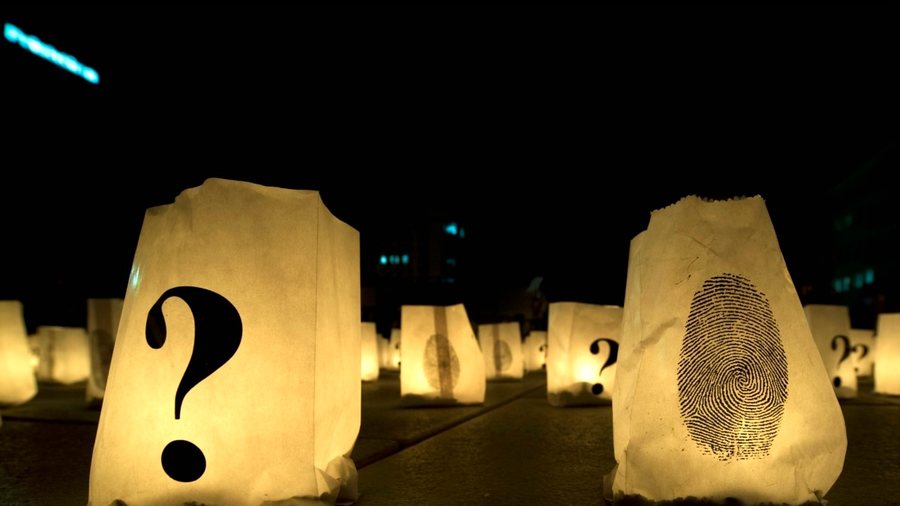
The first inaugural meeting of the Joint Kosovo-Serbia Commission on Missing Persons is taking place in Brussels today.
The establishment of this commission was based on an agreement reached last year within the framework of the dialogue for the normalization of relations between Kosovo and Serbia, mediated by the European Union, for the implementation of the Declaration on Missing Persons.
According to the Red Cross, there are still 1,612 people missing from the war in Kosovo. You can read who they are here .
At the meeting, the Kosovo delegation will be led by Halil Cenaj, announced the chairman of the Government Commission on Missing Persons, Andin Hoti.
Meanwhile, before the meeting, Serbia did not announce who would lead its delegation.
According to EU sources, no concrete action is expected at this meeting, but it will be more of a symbolic and ceremonial nature , given that it will be the first meeting of this commission. Also, the fact that Kosovo is in the election campaign period, affects that this will be only a symbolic meeting.
Sources in Brussels said that the meeting will be an opportunity for the parties to present their priorities and agree on the dates of future meetings, in which concrete results are expected.
The chairman of the Kosovo government's Commission on Missing Persons, Andin Hoti, wrote on Facebook that the work plan and next meetings will be determined in Brussels.
He stated that in this regard, the Kosovo delegation will present several key requests, mainly related to monitoring the implementation of the Declaration on Missing Persons, "with particular focus on the letter on archives, which we have addressed to Vučić, and other important issues in this field."
"This meeting is an important step towards implementing the existing agreement, the Declaration on Missing Persons, adopted on May 2, 2023," he said.
In December last year, Kosovo and Serbia agreed to form this joint commission to implement the Declaration, and the EU had described it as one of the most important results of the dialogue last year.
The political declaration was reached in May 2023 between the Prime Minister of Kosovo, Albin Kurti, and the President of Serbia, Aleksandar Vučić.
However, so far no concrete action has been taken to implement it, as the families of more than 1,600 missing people – mostly Albanians – anxiously await to know the fate of their loved ones.
One of them is Fitim Dubovci, who is looking for his father who disappeared during the last war in Kosovo in 1998-1999.
"They took my father alive, but today, I only believe 1 percent that he could be alive somewhere," he told REL in April 2024.
Pitimi from Çikatova, Drenas, besides his father, has five other missing family members.
"How many family members of missing persons have already died 'with their eyes open' because they did not know where their loved ones were," he said.
The EU has previously said that the implementation of the Declaration on Missing Persons requires the operationalization of the Joint Commission.
However, in the past the parties had accused each other of a lack of willingness to provide information about the missing as well as access to relevant documents and military archives important for clarifying the fate of missing persons.
The Declaration on Missing Persons states that the parties commit to identifying burial sites and then excavating them.
There, the parties also agree to provide full access to reliable and accurate information that would assist in locating and identifying missing persons in the period January 1, 1998 - December 31, 2000.
"This includes all materials, notes, orders, documents, videos, audio recordings and any other documents - including those with classified status - in the possession of institutions of both parties, which are relevant to this context," the Declaration states.
This Declaration does not mention the military or police archives, which Kosovo has requested that Serbia open as it says they contain information about the missing.
However, it mentions documents with classified status, which according to experts, refers to confidential documents or state military and police archives, which, according to them, would help in finding missing persons.
Kosovo has conducted excavations at various locations suspected of containing the remains of people killed during the war. But authorities have often said the problem lies with the locations in Serbia where Kosovo war victims are suspected of being buried.
In the region, from the conflicts in Croatia and Bosnia and Herzegovina, clarifying the fate of missing persons is also part of the work of joint commissions between these states. /REL (A2 Televizion)











